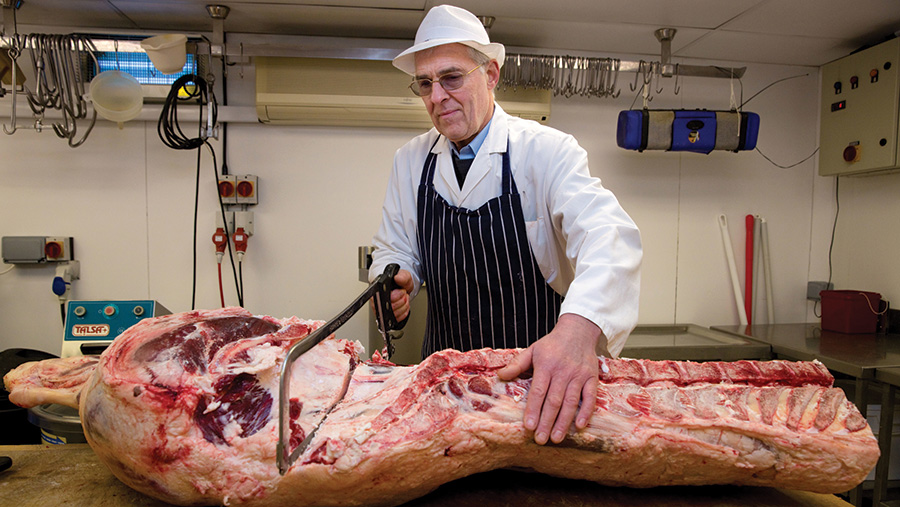Business Clinic: Grants for farm meat-processing conversion
 © Tim Scrivener
© Tim Scrivener Farmers Weekly’s Business Clinic experts offer free advice on legal, finance, tax, insurance, farm management and land issues.
Here Ashley Lilley – director of agribusiness for Savills – offers guidance on how to make the most of available grants for new projects.
Q: I am looking to convert a redundant farm building into a meat-processing facility and have heard that there might be some new English grants.
The project will cost about £100,000. What financial support is there for this type of project and how would I apply?
A: There are several new funding opportunities – the Countryside Productivity Scheme (CPS), the Growth Programme, and Leader.
The CPS will provide grants of between £2,500 and £1m, covering up to 40% of a project’s total costs.
These are targeted at improving productivity and example projects include automated feed systems, real-time monitoring for animals, or LED lighting for horticulture. Multiple items may be applied for in one application which are administered by the Rural Payments Agency.
The aim of the Growth Programme is to create rural jobs and to benefit the rural economy. The target is that for every £25k of funding, one job will be created, although there may be exceptions.
This scheme is administered by Local Enterprise Partnerships (LEPs), each of which has its own set of priorities. Generally, this scheme is targeting larger projects worth more than £100,000.
Leader is administered by Local Action Groups (LAGs), and also focuses on local priorities, although these may differ to those of LEPs. Leader is targeting smaller projects, generally worth less than £100,000.
See also: Business Clinic – What should a farmer look for when moving banks

Ashley Lilley, director agribusiness, Savills
If you are considering an application for any of these schemes, make sure your project is as far advanced as possible.
Contact a member of your LAG or LEP and look out for events happening in your area. The involvement of different organisations can cause confusion, so making contact will provide clarity.
They will also tell you about local priorities and application periods.
Application processes vary but with all of them detail is the key to success, so allow plenty of time. Usually a comprehensive business plan and set of accounts is required.
Obtaining information such as quotes can cause delays and in most situations equipment has to be new to qualify for funding.
Where planning permission is required, make sure it is in place prior to an application as it is a pre-requisite. Also, make sure you can finance the entire project, as typically grants will be paid in arrears.
You need to be realistic about timescales, in terms of the amount of time it takes to prepare and submit an application and the time required to complete the project post-approval.
Draw up a timeline and work back from key dates, for example, have a new fruit grader installed in time for next year’s apple harvest.
Only the applications displaying value for money and which meet local and national priorities will be successful.
Given the likely scale of this project, Leader is probably the most appropriate source of funding as it focuses on farm diversification and is available in most of the country.
More information can be found on the government’s main website for rural development programmes. Different schemes operate in Scotland, Wales and Northern Ireland.
Do you have a question for the panel?
Outline your legal, tax, finance, insurance or farm management question in no more than 350 words and Farmers Weekly will put it to a member of the panel. Please give as much information as possible.
Send your enquiry to Business Clinic, Farmers Weekly, RBI, Quadrant House, The Quadrant, Sutton, Surrey SM2 5AS.
You can also email your question to fwbusinessclinic@rbi.co.uk or post it on the Farmers Weekly website.

